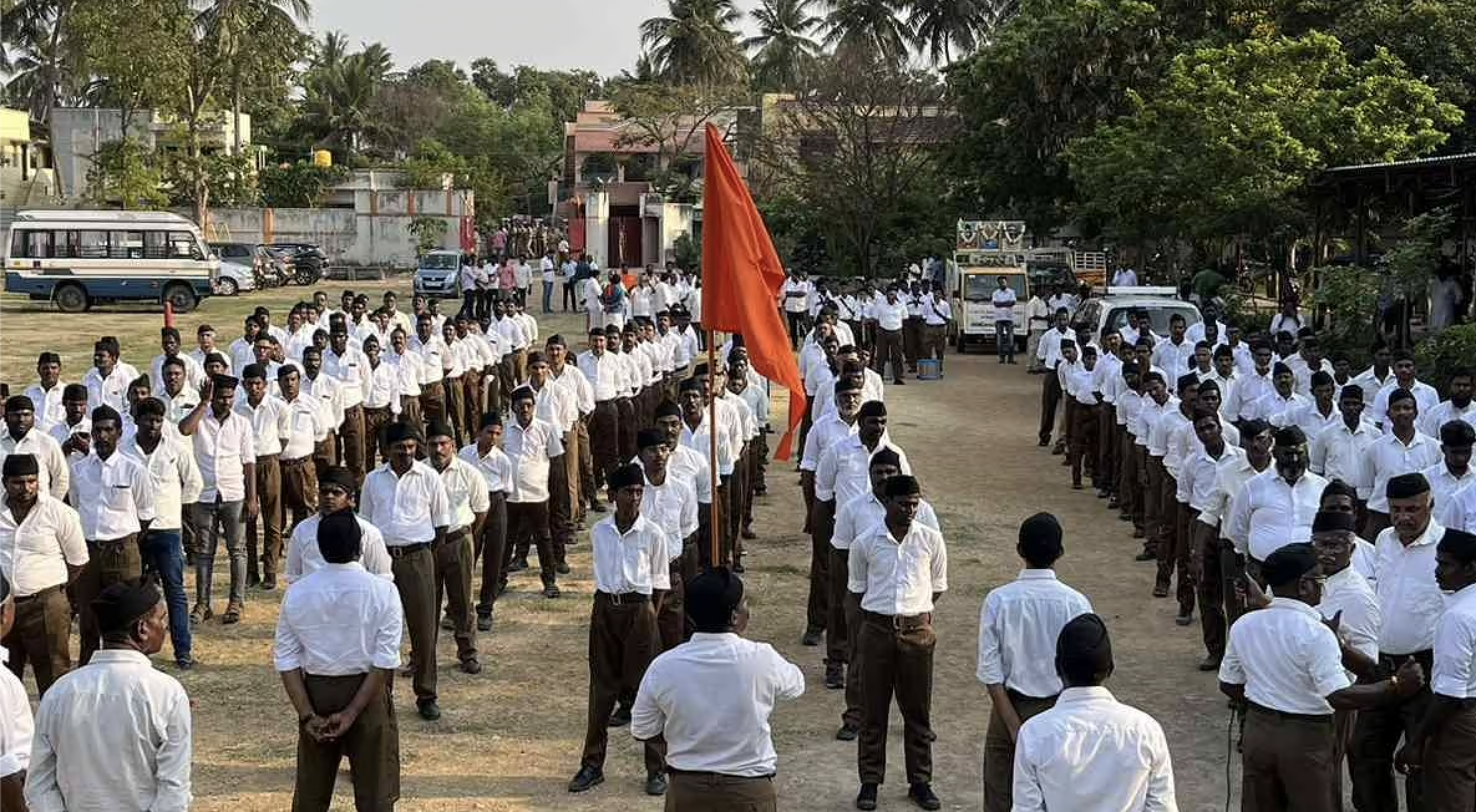
The Bharatiya Janata Party (BJP) loves to boast about being the world’s biggest political party, and ruling the largest democracy on the planet. The truth however is that it’s a part of the rabid Rashtriya Swayamsevak Sangh (RSS), which has has managed to build a Hindutva empire of hate and bigotry. The present government, far from.upholding the ideals of democracy, has instead crowned this empire by removing the six-decade old ‘ban’ on government employees taking part in RSS activities through a Government Order, which removes the ban by reviewing three circulars issued in 1966, 1970 and 1980. And with this move, whatever semblance of governance that is left in this country is ready to sink.
First, let’s look at what The Central Civil Services (Conduct) Rules, 1964, clause 5, has to say on government servants taking part in politics:
- No Government servant shall be a member of, or be otherwise associated with, any political party or any organisation which takes part in politics nor shall he take part in, subscribe in aid of, or assist in any other manner, any political movement or activity.
- It shall be the duty of every Government servant to endeavour to prevent any member of his family from taking part in, subscribing in aid of, or assisting in any other manner any movement or activity which is, or tends directly or indirectly to be, subversive of the Government as by law established and where a Government servant is unable to prevent a member of his family from taking part in, or subscribing in aid of, or assisting in any other manner, any such movement or activity, he shall make a report to that effect to the Government.
- If any question arises whether a party is a political party or whether any organisation takes part in politics or whether any movement or activity falls within the scope of sub-rule (2), the decision of the Government thereon shall be final.
The RSS was initially declared an unlawful organisation in 1948 due to concerns over its activities after a member, Nathuram Godse, assassinated Mahatma Gandhi. Sardar Vallabhbhai Patel, the then Union Home Minister who imposed the ban, wrote to RSS Chief MS Golwalkar on 11 September, 1948: “Organising Hindus and helping them is one thing but going in for revenge for its sufferings on innocent and helpless men, women and children is quite another thing… All their speeches were full of communal poison. It was not necessary to spread poison in order to enthuse the Hindus organize for their protection… As a final result of the poison, the country had to suffer the sacrifice of the valuable life of Gandhiji. Even an iota of the sympathy of the Government, or of the people, no more remained for the RSS. In fact, opposition grew. Opposition turned more severe, when the RSS men expressed joy and distributed sweets after Gandhiji’s death. Under these conditions it became inevitable for the Government to take action against the RSS…”
Subsequently, the ban was withdrawn on assurances of good behaviour. Even after this, the RSS never flew the national flag in Nagpur. In 1966, a fresh ban was introduced. As certain doubts were raised about the government’s policy with respect to the membership of and participation in the activities of the Rashtriya Swayamsevak Sangh and the Jamaat-e-Islami by government servants, it was clarified that government has always held the activities of these two organisations to be of such a nature that participation in them by government servants would attract the Central Civil Services Conduct Rules. The 1970 Circular reiterated the 1966 directive and stressed disciplinary action against violators.
This story was originally published in thenewsminute.com. Read the full story here.






